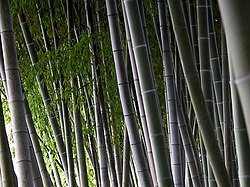Course:CONS200
| Guidelines | 2026 | Past Projects | Help and Resources |
This is the Wiki Project Page for CONS200. The Open Case Studies project at UBC brings together faculty and students from different disciplines to write, edit, and learn with case studies that are free and open--they are publicly available free of cost, and they are licensed to allow others to revise and reuse them. As part of CONS200, you have the opportunity to create valuable educational resources that can be used world-wide. You will create a wiki article to demonstrate (a) your ability to extract and summarize relevant information and (b) your capacity to rationalize and present logical arguments for further evolution or progress on some aspect of your case study.
Assignment Guidelines
Length
The Wiki Paper should be between 3,000 and 3,500 words of text in length (exclusive of references, maps, photographs).
Purpose
You should demonstrate your ability to: (a) extract and summarize facts, (b) present relevant claims and corresponding evidence related to some aspect of environmental conservation, and (c) provide an in-depth analysis and evaluation of potential solutions and recommendations related to your topic.
Suggested Structure
This is only the minimum suggested structure. It is very likely that you will need to include more sections in your Wiki page.
- Introduction
- Background on the issue or problem – Historical information, scope/scale of the problem, intensity/frequency/severity of impacts, variables influencing those impacts and any other relevant information needed for understanding the issue;
- Current remedial actions – Identify the solutions or efforts that are currently underway to tackle the issue or problem;
- The path forward – Describe your analysis and evaluation of additional solutions and recommendations from a technical, social, cultural, economic, financial, political and/or legal points of view (not all of these categories will be relevant to all situations);
- Conclusion – You should conclude your Wiki paper by summarizing the topic, or some aspect of the topic.
References
- Ensure that you use reliable sources (e.g. peer reviewed literature, government reports, books). Citing a reliable newspaper or media is acceptable, only when you cannot find another more reliable source.
- Use the Wikipedia reference style (see Wikipedia:Inline citation)
- Provide a citation for every sentence, statement, or bit of data not your own, giving the author, year, AND page number in the reference list (page number is needed only if quoting textually).
- For dictionary references for English-language terms, I strongly recommend you use the Oxford English Dictionary.
- You can reference foreign-language sources but translate the reference to English.
Graphics, Multimedia, and Hyperlinks
Images, multimedia sources and hyperlinks enhance quality of information; all acknowledged with captions or annotations.
Sharing Your Work
All wiki project pages are openly accessible on the Internet. If you would like to give permission for other people to use them (for example, by including them on the UBC Open Case Studies Site), the project template includes a green box that allows you to add your name(s) as author(s) of the resource and indicate if you'd like to share your work via a Creative Commons license . If you would like, add a name for who or what project created the resource, add that info after the names parameters. If left blank, it will default to Course:CONS200.
The following is all optional but if you’d like your name added to the page as author as well allowing other people to re-use it as a conservation resource, you can:
- Click on the edit tab to edit your page
- Then scroll to the bottom and click on the green box at the bottom of the page
- This will generate a little pop-up with an edit button. Push the edit button.
- In the names field, add your name if you would like to be credited as the author
- In the share field, add “yes” (must be lowercase) if you would like to allow other folks to be able to reuse your page, such as by including it on the UBC open case studies site at http://cases.open.ubc.ca/. Clicking yes adds a creative commons license to the page.
Useful links
- UBC Open Case Studies: Features many CONS200 Wiki Projects.
